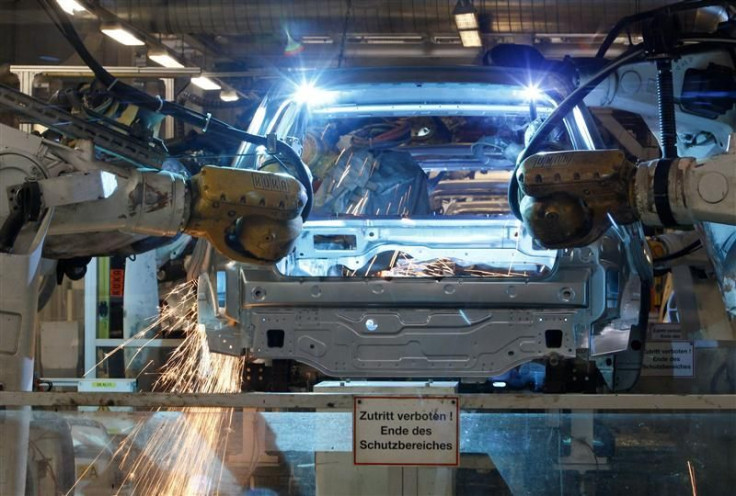German Surplus Widens, France Set for Record Trade Gap

(REUTERS) -- German exports bounced back in November boosting the country's trade surplus, a sign that Europe's largest economy may avoid a sharp slowdown in contrast to France which is expected to have run up a record trade deficit in 2011.
The leaders of the two countries met on Monday to find ways to create faster growth and help the Eurozone out of its debt crisis.
The German economy has shown resilience but France is struggling to stay competitive, a problem for President Nicolas Sarkozy ahead of an April election.
New data from China, one of the largest importers of German goods, showed banks ratcheted up lending in December, reinforcing perceptions that the central bank is gently easing policy to cushion for slower growth abroad.
Looking ahead, external demand from outside the euro zone, with the U.S. and Asia providing some positive news recently, and solid domestic demand have made the German economy the last stronghold of a rapidly weakening euro zone, said ING economist Carsten Brzeski.
German exports rose 2.5 percent in November after posting their biggest fall in half a year the previous month, official data showed, easily beating the 0.7 percent forecast. The surplus widened to 15.1 billion euros.
France's trade deficit narrowed sharply to 4.4 billion euros in November helped by Airbus exports. It is still heading for a record in 2011, however, highlighting the decline of French competitiveness compared to its German neighbors.
Looking ahead, we do not expect the trade deficit to improve significantly, Barclays Capital wrote of the France's trade balance.
The French government expects the euro zone's second biggest economy to grow 1.0 percent this year although most economists are forecasting growth much closer to zero as businesses and consumers entrench for a painful downturn.
International Monetary Fund head Christine Lagarde was quoted as saying on Monday Europe may avoid a recession this year and there were reasons to be more upbeat about prospects for the region.
COOLING
Germany's export-driven economy recovered quickly from the 2008/09 financial crisis and data due on Wednesday is expected to show 2011 economic growth of 3.0 percent.
But the outlook has darkened as euro zone debt worries have begun to weigh on the real economy, depressing both investor and consumer confidence, and most economists have cut their forecasts for 2012 growth over the past month.
The trade data showed a surprise fall in imports, reflecting weak domestic demand and analysts said falling orders still pointed to weaker German exports in the months ahead.
Separate data showed a surprisingly sharp fall in industrial output in November.
Gross domestic product is likely to have shrunk already at the end of the year. The start of the year is likely to have been bumpy but the feared breakdown of the German economy has not happened, said Ulrike Rondorf at Commerzbank.
Demand from countries outside the Eurozone, supported by a weak euro, could nonetheless support German exports this year. The euro hit a 16-month low versus the dollar and an 11-year trough against the yen on Monday.
The weakness of the euro...helps German and other European exporters dampening to some extent the consequences of the weaker global outlook, said Juergen Michels at Citigroup.
The Statistics Office publishes the regional breakdown of month-on-month trade data later in the month, yet unadjusted year-on-year data already showed exports to non euro zone countries rising faster than those to the currency bloc.
BMW , the world's largest maker of premium cars, said on Monday it achieved record sales in 2011, and Volkswagen said on Sunday it aimed to sell more than half a million cars in the U.S. for the first time in 39 years.
(Additional Reporting by Annika Breidthardt and Rene Wagner in Berlin and Leigh Thomas in Paris; Writing by Anna Willard)
© Copyright Thomson Reuters 2024. All rights reserved.




















